
ICAS Bulletin (online ISSN 2836-3418, print ISSN 2836-340X) is published every other week throughout the year at 1919 M St NW, Suite 310, Washington, DC 20036.
The online version of ICAS Bulletin can be found at chinaus-icas.org/bulletins/.
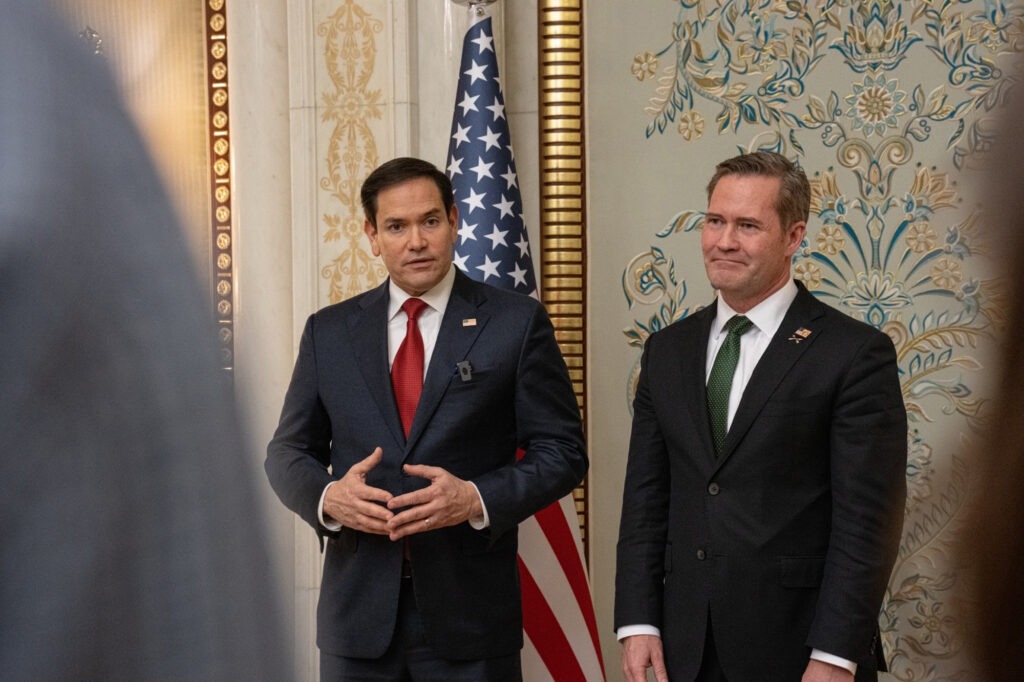
– On March 17, China’s state-run Global Times praised President Donald Trump’s decision to cut funding for the U.S. Agency for Global Media, shutting down Voice of America and Radio Free Asia broadcasts.
– On March 17, President Donald Trump suggested that Chinese President Xi Jinping may visit the United States soon for talks amid escalating economic tensions, following Trump’s imposition of 20% tariffs on all Chinese imports.
– China halted imports of U.S. liquefied natural gas (LNG) for 40 days, the longest gap since June 2023, as Beijing imposed a 15% tariff on U.S. shipments in retaliation for broad American tariffs. This countermeasure has prompted Chinese buyers to redirect supplies to Europe and seek alternatives from Australia, Russia, and domestic production.
– On March 16, President Donald Trump signed an executive order to strip back the federally funded Voice of America (VOA), citing its alleged anti-Trump bias. This has effectively put most of its 1,300 staff on leave and cut grants to its parent agency.
– On March 15, the U.S. imposed visa restrictions on Thai officials for deporting at least 40 Uyghur men to China despite concerns over their safety, while Thailand defended its decision, citing Chinese assurances of the deportees’ well-being.
– On March 14, U.S. House Republicans introduced a bill to ban Chinese nationals from receiving student visas, citing national security concerns, but the measure faces strong opposition from educators, scholars, and the Chinese government.
Associated News References:
“China’s Global Times praises Trump funding cuts to Voice of America, Radio Free Asia,” South China Morning Post, March 18
“China’s Xi may visit US in not-too-distant future, Trump says,” Reuters, March 17
“China Halts US LNG Imports as Trade War Reroutes Deliveries,” Bloomberg, March 17
“Trump dismantles Voice of America with executive order,” BBC, March 16
“US imposes sanctions on Thai officials after Uyghur men are deported to China,” AP News, March 15
“Republican legislation seeks to ban Chinese nationals from studying in the US,” AP News, March 14

– On March 17, President Donald Trump warned Iran of “dire” consequences if Yemen’s Houthi rebels continue attacking international shipping, holding Tehran responsible for every Houthi strike.
– On March 17, China called for dialogue and de-escalation in the Red Sea after Yemen’s Iran-backed Houthi rebels claimed to have attacked the U.S. aircraft carrier USS Harry Truman twice in 24 hours, with Foreign Ministry spokeswoman Mao Ning urging diplomatic negotiations.
– On March 17, oil prices rose as U.S. President Donald Trump warned that Iran would be held responsible for any future Houthi attacks on shipping, following a new wave of U.S. airstrikes against the Yemen-based militant group, while Defense Secretary Pete Hegseth vowed an “unrelenting” campaign until the Houthis cease their attacks in the Red Sea.
– On March 16, President Donald Trump launched large-scale military strikes against Yemen’s Iran-backed Houthi rebels, killing at least 31 people, as the Houthis vowed retaliation and Iran condemned the U.S. action as a violation of international law.
– On March 16, Yemen’s Houthi rebels claimed they had twice attacked the USS Harry S. Truman aircraft carrier group within 24 hours in retaliation for U.S. airstrikes.
– On March 14, China, Russia, and Iran jointly called for the U.S. to lift sanctions on Iran and restart nuclear negotiations, with Chinese Vice Foreign Minister Ma Zhaoxu emphasizing diplomatic engagement as the only viable path, while Iran’s Supreme Leader Ayatollah Ali Khamenei dismissed U.S. overtures despite ongoing economic struggles under U.S. sanctions
Associated News References:
“Trump warns Iran will face ‘dire’ consequences unless Houthi attacks stop,” BBC, March 17
“China urges ‘dialogue’ after Yemen rebels say attacked US carrier,” CNA, March 17
“Oil rises as Trump says Iran will be held responsible for any future Houthi attacks,” CNBC, March 17
“Trump launches large-scale strikes on Yemen’s Houthis, at least 31 killed,” Reuters, March 16
“Yemen’s Huthis claim attacks on carrier group after US strikes,” Yahoo, March 16
“China, Russia and Iran call for end to US sanctions on Iran and the restart of nuclear talks,” AP News, March 14
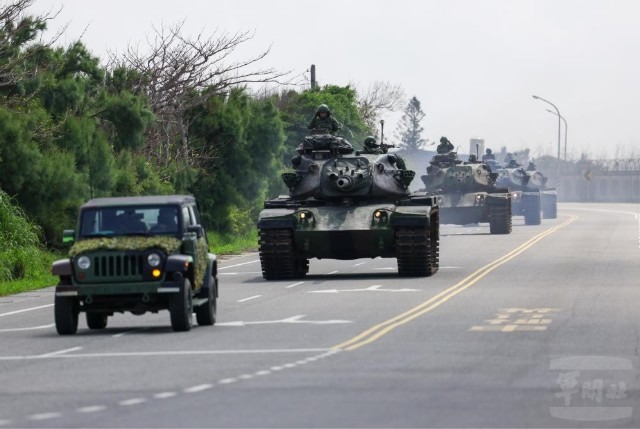
– On March 18, Taiwan launched five days of combat-readiness drills in response to increased Chinese military pressure, prompting Taiwan to scramble jets, activate missile defenses, and simulate responses to potential amphibious assaults.
– On March 18, China conducted military exercises around Taiwan, with Foreign Ministry spokesperson Mao Ning linking them to recent U.S. actions supporting the island, while Taiwan’s Defense Ministry reported 43 PLA aircraft crossing the median line in the strait.
– On March 18, former Slovenian Prime Minister Janez Janša stated during the Yushan Forum in Taipei that if his Slovenian Democratic Party regains power in the 2026 elections, he would swiftly establish reciprocal representative offices between Taiwan and Slovenia, while also promoting bilateral cultural and sports exchanges.
– On March 17, officials said that Taiwan expects the US to continue supporting it with advanced weapons and training in case of hostilities with China.
– On March 14, Zhao Leji, China’s No. 3 official, called for strengthening legal measures against potential Taiwan independence and foreign intervention at a symposium marking the 20th anniversary of the Anti-Secession Law, reaffirming Beijing’s commitment to reunification, while Taiwan’s President Lai responded by introducing national security measures.
– On March 13, Taiwanese President Lai Ching-te designated China a “foreign hostile force” and announced stricter measures to counter alleged Chinese infiltration and espionage, including reinstating military trials for spying and limiting United Front-linked exchanges.
Associated News References:
“Taiwan holds combat-readiness drills in response to PLA’s grey zone provocations,” South China Morning Post, March 18
“China signals new military drills near Taiwan are response to US,” Bloomberg, March 18
“Slovenian opposition leader makes Taiwan office pledge,” CNA, March 18
“Taiwan Expects US Support in China Hostilities, Official Says,” Bloomberg, March 17
“Mainland China calls for legal improvements to fight Taiwan independence, foreign forces,” South China Morning Post, March 14
“Taiwan’s leader says tougher measures needed to counter stepped-up Chinese infiltration and spying,” AP News, March 13
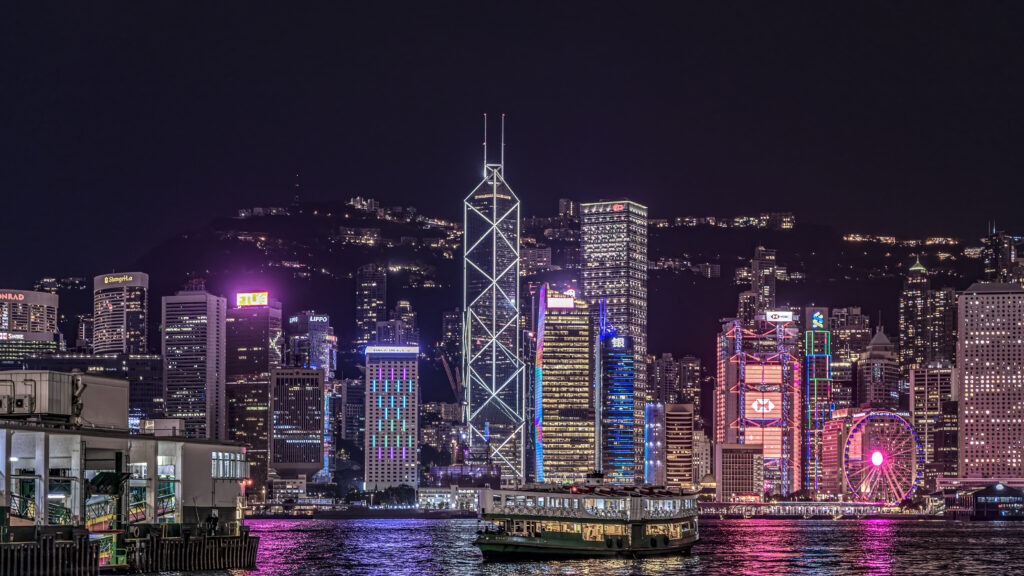
– On March 18, Hong Kong stocks surged to a three-year high, with the Hang Seng Index rising 2.5%, as investor optimism grew over a potential meeting between President Donald Trump and President Xi Jinping that could ease trade tensions, driving gains in Chinese tech stocks such as Baidu, Alibaba, and Kuaishou.
– On March 17, China sent a senior delegation led by Vice Minister Ma Hui to Panama to assess recent geopolitical shifts, including Panama’s withdrawal from the Belt and Road Initiative and the sale of Hong Kong-based CK Hutchison’s Panama port operations to a U.S.-led group.
– On March 17, the OECD warned that President Donald Trump’s escalating trade war, including new tariff hikes on imports from Canada and Mexico, will slow economic growth in North America, raise inflation, and potentially force central banks to maintain high interest rates, while China’s economy is expected to remain resilient.
– On March 14, 2025, China strongly criticized CK Hutchison’s $22.8 billion sale of Panama Ports Company to a U.S.-led consortium, with state media accusing the Hong Kong-based firm of betraying national interests under American pressure.
– On March 13, Taiwan Semiconductor Manufacturing Company (TSMC) announced a $100 billion investment in the U.S. following pressure from President Donald Trump, raising concerns in Taiwan over losing its strategic semiconductor industry.
– On March 13, Chinese authorities met with Walmart executives after reports that the U.S. retailer pressured Chinese suppliers for price cuts to offset Trump’s new 20% tariffs on Chinese imports, with state media warning of possible further action if Walmart continues to shift the tariff burden.
Associated News References:
“Hong Kong stocks hit 3-year high on hopes Trump-Xi talks could ease trade tensions,” South China Morning Post, March 18
“China sends delegation to Panama after ports deal, belt and road exit,” Yahoo, March 17
“Trump trade war to sap Canadian, Mexican and US growth, OECD says,”Reuters, March 17
“China criticises Hong Kong firm’s sale of majority stake in Panama ports,” The Guardian, March 14
“TSMC US investment: Fear and resignation after ‘world’s most powerful company’ pays Trump $100 billion,” CNN Business, March 13
“Walmart feels the heat in China after Trump imposes tariffs,” CNN Business, March 13
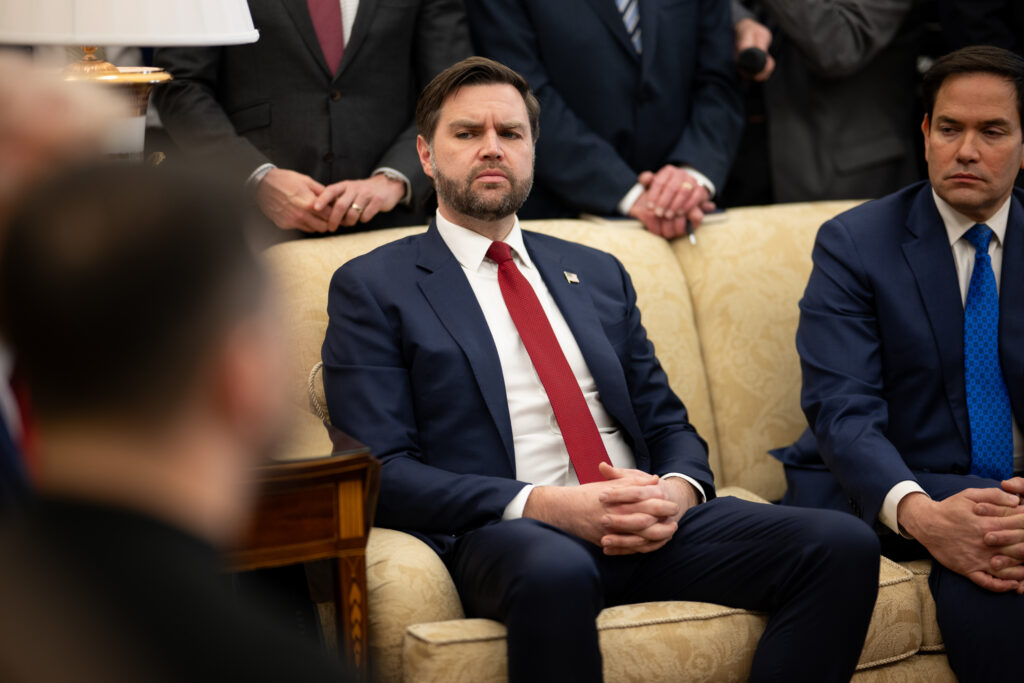
– On March 18, President Donald Trump prepared to hold talks with Russian President Vladimir Putin to discuss a ceasefire in Ukraine, despite skepticism from Ukrainian President Volodymyr Zelenskyy. The White House expressed optimism about securing peace while reports indicated that U.S. and Russian officials were discussing control over Ukrainian assets.
– On March 17, China’s foreign aid agency announced its interest in participating in Ukraine’s post-war reconstruction, stating that Beijing would provide assistance “in accordance with the wishes of the parties,” while emphasizing its ongoing humanitarian aid to Kyiv.
– On March 17, Chinese electric vehicle giant BYD was reported to be considering Germany as the location for its third European assembly plant, aiming to boost brand recognition and avoid EU tariffs on China-made EVs.
– On March 14, the European Parliament suspended access for lobbyists associated with Huawei amid an ongoing bribery investigation by Belgian prosecutors. Huawei responded by stating it takes the allegations seriously and will cooperate with authorities.
Associated News References:
“Trump and Putin will hold a call on a ceasefire but Zelenskyy is skeptical Russia is ready for peace,” AP News, March 18
“China seeks a role in Ukraine’s post-war reconstruction,” Yahoo, March 17
“Exclusive: BYD considers Germany for third plant in Europe,” Reuters, March 17
“European Parliament suspends access for lobbyists of China’s Huawei,” Reuters, March 14

“Trump wants to build more ships in the United States. It’s not so simple,” The Washington Post, March 23
“India’s Modi signals thaw in China ties, reaffirms ‘strong bond’ with Trump,” South China Morning Post, March 18
“DeepSeek Is Embraced in China by Government Nationwide” The New York Times, March 18
“Tesla Stock Slides Another 6% As More Firms Warn Of Musk-Led Company’s ‘Sales Woes’,” Forbes, March 18
“Cambodia says expanded port funded by China opening next month – with first call from Japanese navy,” The Washington Post, March 18
“China vows to ‘vigorously boost consumption’ to revive weak economy,” The Washington Post, March 18
“Is US losing plasma engine race to China and Russia ahead of long journey to Mars,” South China Morning Post, March 16
“China Outlines Plan to Bolster Consumption in Face of Trump Tariffs,” The New York Times, March 16
Opinion | As China modernists its navy, the US races to stay ahead
By Nong Hong
March 20, 2025
Lawmakers in the United States are making a strategic push to revive its shipbuilding industry through the “Save Our Shipyards Act”, signalling a renewed focus on maritime strength amid growing geopolitical competition. This effort reflects increasing concerns over China’s expanding naval capabilities, Russia’s Arctic defence fortification and the importance of securing global trade routes and strategic chokepoints.
From the Third Plenum to the ‘Two Session Meeting’
By Sourabh Gupta
March 17, 2025
China’s overall macroeconomic policy stance is more supportive of short-and-medium term growth than at any time over the past decade, and is perhaps more robust than it has ever been since President Xi Jinping’s ascension to office.
China’s pivot from excess real estate investment-led growth to high-technology-intensive manufacturing-led growth is here to stay. In the leadership’s obsessive view of ‘new quality productive forces’, investment in technology-enabled growth will generate high-wage jobs and rising incomes that creates its own consumptive demand, as well as generates self-sufficiency in core technologies that will enable the country to surmount America’s technology chokehold.
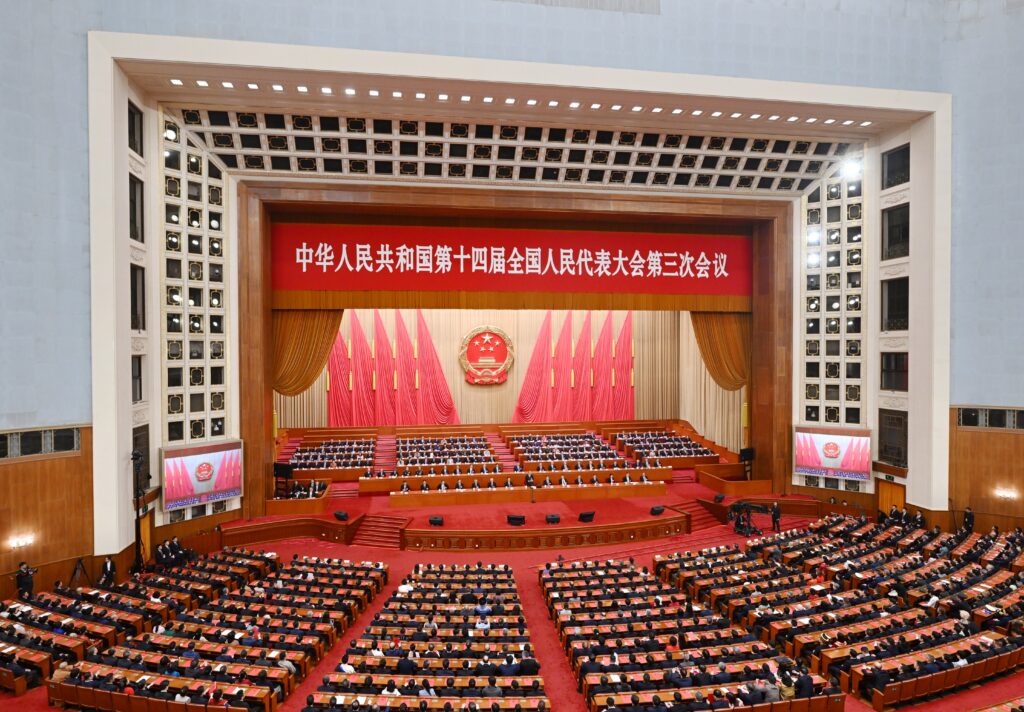
Dr. Nong Hong spoke on China-Russia cooperation in the Arctic at China-Russia
By Dr. Nong Hong
February 28 – March 1, 2025
China’s overall macroeconomic policy stance is more supportive of short-and-medium term growth than at any time over the past decade, and is perhaps more robust than it has ever been since President Xi Jinping’s ascension to office.
China’s pivot from excess real estate investment-led growth to high-technology-intensive manufacturing-led growth is here to stay. In the leadership’s obsessive view of ‘new quality productive forces’, investment in technology-enabled growth will generate high-wage jobs and rising incomes that creates its own consumptive demand, as well as generates self-sufficiency in core technologies that will enable the country to surmount America’s technology chokehold.
On Wednesday, March 12, 2025, Senior Fellow Sourabh Gupta was interviewed in CGTN discussing how innovation will drive China’s economic growth in 2025.
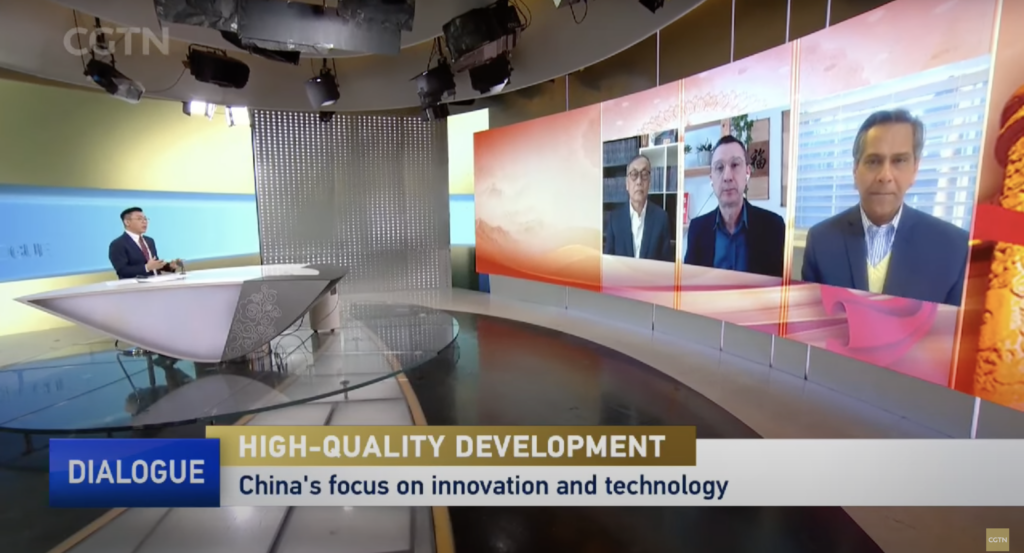

The Institute for China-America Studies is an independent nonprofit, nonpartisan research organization dedicated to strengthening the understanding of U.S.-China relations through expert analysis and practical policy solutions.
1919 M St. NW Suite 310,
Washington, DC 20036
icas@chinaus-icas.org
(202) 968-0595
© 2025 INSTITUTE FOR CHINA-AMERICA STUDIES. ALL RIGHTS RESERVED.